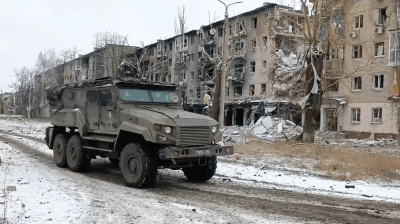Events
Security and Defence
In cooperation with the Dutch Embassy in Paris, the Clingendael Institute organised a seminar titled European defence industry: urgent action needed! on Wednesday 28 February 2024. A Clingendael Policy Brief with the same title served as input for the seminar, which aimed at delivering concrete suggestions and ideas to speed up European defence industrial production, taking into account the roles of the EU, its member states and industry. The seminar was conducted under the application of the Chatham House Rule. This report summarises the most important findings from the seminar discussions and provides a set of recommendations to accelerate European defence industrial production.
Findings
- The immediate driving factor for ramping up European defence industrial production is the Ukrainian high demand for continued military support with the delivery of ammunition as the first, short-term priority.
- The geopolitical competition provides the wider context of the need to accelerate the strengthening of the European Defence Technological and Industrial Base (EDTIB). No matter how the war will end, Russia will still be Russia. China is looming behind Russia. Europe’s southern neighbourhood (Middle East, Northern Africa) is increasingly becoming a playground for global competition.
- For the EU to be a global actor, it is indispensable to fully implement the Strategic Compass and to develop new tools for a long-term approach to ramp up defence industrial production in a sustained manner. The first European Defence Industry Strategy (EDIS) and the European Defence Investment Programme (EDIP) should steer this process.
- Partnerships can help to provide solutions, both for near-term needs such as buying ammunition inside and outside the EU for Ukraine’s war effort as well as in the longer term. Ukraine has to be associated with the EDTIB prior to EU membership.
- Close coordination with NATO remains essential, in particular with regard to capability requirements, and the standardisation, interoperability and interchangeability of equipment.
- As a result of the period of peace in Europe, the European defence industry has become riskaverse and has been too focussed on exports. Large-scale production is now needed to deliver the needs of Ukraine and the member states in terms of quantity, quality and at the relevant speed.
- More than 90% of defence-industrial production in nominal terms takes place in five EU member states. However, a true EDTIB requires a level playing field and using all available industrial capacities. Small and Medium-sized Enterprises (SMEs) in smaller countries should obtain crossborder access as suppliers to larger Original Equipment Manufacturers (OEMs).
- The existing EDTIB is less fragmented than is often stated: there are good examples of joint procurement and industrial consolidation. The problem is that the EDTIB produces too slowly, e.g. tanks, helicopters and missile defence.
- Changing to a war economy in a (national) peacetime environment is difficult. However, there are solutions for speeding up defence industrial production through long-term orders and increasing stocks of raw materials.
Recommendations
- The EU’s multitude of instruments to increase capability development and for strengthening the EDTIB should be brought together in a coherent framework for improving European military capacities.
- In order to maintain EU unity, constructive abstention in decision-making is a good option when one or more member states wish to refrain from participation in the implementation. The EPF model provides the example.
- Instead of appointing a Defence Commissioner in the next European Commission, a second High Representative/Vice-President (HV/VP) for Defence could be an option.
- Use the lessons learned from the implementation of the European Defence Fund (EDF) to further incentivise cross-border defence industrial cooperation.
- EDIS and EDIP should promote cross-border defence industrial access, open supply chains and best-value competition.
- Include Ukraine in the defence industry build-up, even prior to EU membership.
- The Patriot example of licensing the production of missiles in Europe could be expanded to other weapon systems imported from outside Europe, that is to produce ammunition locally with the required transfer of intellectual property rights.
- Industrial stockpiling of raw materials and products could help in speeding up deliveries by the defence companies.
- Transversal technologies – applicable for military and non-military users – offer specific scope for better industrial trade-offs.
- There is ample scope for more cross-border cooperation in the context of the European Defence Agency (EDA).
- There is still a need to pressure for increasing private funding of defence industries as banks and other financial institutions continue to apply criteria limiting access to their funding of defence industrial production.
- In order to ramp up defence industrial production long-term contracts are a key prerequisite






